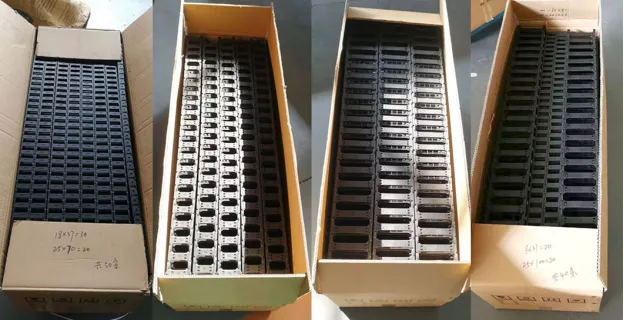flexible cable chain
Understanding Flexible Cable Chains A Key Component in Modern Machinery
In the realm of modern machinery and automation, the efficient management of cables and wires is paramount. As equipment becomes more sophisticated, the need for organized, flexible, and durable cable management solutions grows. This is where flexible cable chains come into play. Often referred to as energy chains, these innovative systems serve as conduits for electrical and data cables, enabling smooth movement and reducing wear over time.
What are Flexible Cable Chains?
Flexible cable chains are articulated conduits designed to protect and guide flexible cables and hoses in dynamic applications. They are typically made from durable materials such as plastic or metal, which provide strength and flexibility. The chains consist of individual links that can pivot freely, allowing them to bend and flex without causing damage to the cables contained within. This characteristic is essential in applications where machinery moves continuously, such as robotic arms, CNC machines, and automated conveyor systems.
The Functionality of Cable Chains
The primary purpose of a flexible cable chain is to ensure that cables are not pinched, stretched, or tangled as machinery operates. By providing a structured path for cables, cable chains minimize risks and enhance operational efficiency. The chain can be mounted on a variety of machines, and it accommodates different types and sizes of cables, including power cables, control cables, and hoses.
Additionally, flexible cable chains can help prevent electromagnetic interference (EMI) and protect cables from environmental hazards like dust, moisture, or physical damage
. This protection is particularly crucial in industrial settings where cables must endure harsh conditions.Advantages of Using Flexible Cable Chains
flexible cable chain

1. Reduced Wear and Tear One of the most significant benefits of flexible cable chains is the reduction of wear on cables. By providing a stable and predictable movement path, they significantly prolong the life of the cables, reducing maintenance costs and downtime.
2. Improved Safety In addition to protecting cables, these chains help prevent accidents caused by tripping over loose cables. By organizing and securing wiring, they contribute to a safer working environment.
3. Flexibility and Customization Flexible cable chains come in various sizes and configurations, allowing for customization to fit specific machine designs and operational needs. This adaptability is crucial for industries that require unique solutions for their equipment, ensuring that all components work harmoniously.
4. Ease of Installation and Maintenance Installing cable chains is generally straightforward, with many options designed for quick assembly. Furthermore, because cables are easily accessible within the chain, maintenance and replacements can be performed with minimal disruption to overall operations.
Applications of Flexible Cable Chains
Flexible cable chains are utilized across a myriad of industries, including manufacturing, automotive, aerospace, robotics, and construction. In manufacturing facilities, they can be found in automated assembly lines, where precision and efficiency are vital. In the robotics sector, cable chains ensure that robotic arms can move freely without hindrance from entangled wires. Even in construction, these chains are used for tower cranes and other equipment that require significant movement.
Conclusion
As technology continues to evolve, the demand for effective cable management solutions will only increase. Flexible cable chains represent an essential tool in achieving high-performance machinery while maintaining safety and reliability. Their ability to protect cables, improve operational efficiency, and adapt to various applications makes them invaluable in the modern industrial landscape. Companies that prioritize cable management through the use of flexible cable chains can expect to see enhanced productivity, reduced costs, and improved safety in their operations. As industries continue to innovate, the role of these adaptable systems will undoubtedly become more prominent.








